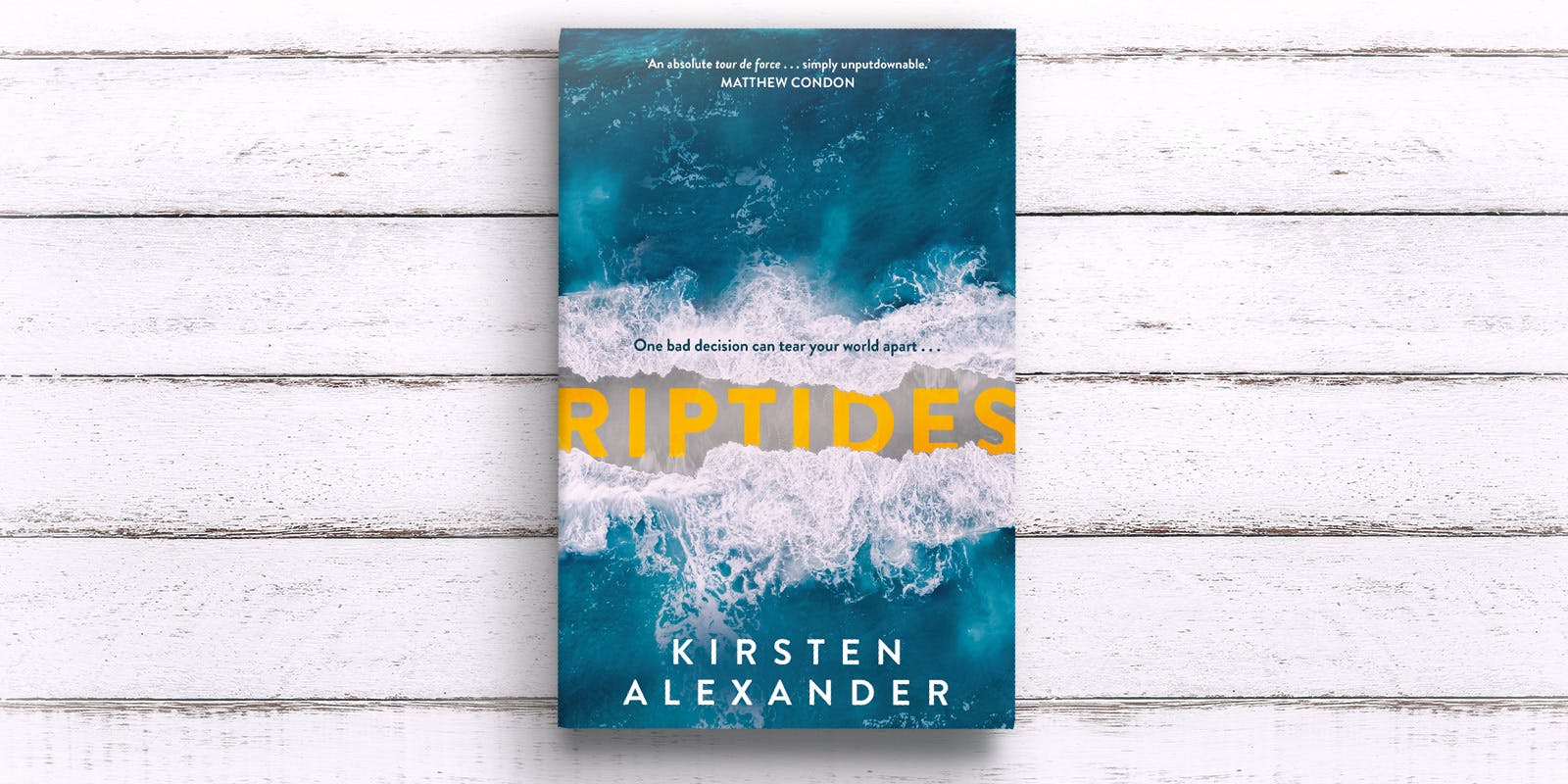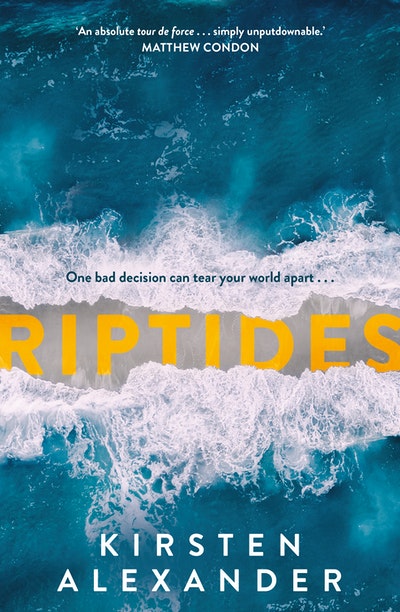Kirsten Alexander reflects on growing up in Brisbane in the 1970s, and how this inspired the setting and characters in Riptides.
It’s no Paris. Or Amalfi Coast. Not a lush tropical island, though it’s steamy in summer. Brisbane isn’t an obvious setting for a novel, and not a destination that calls to many people except as a jumping point to Gold Coast theme parks or the reef. And yet, stories unfold where they make sense, so Riptides takes place in 1970s Brisbane.
I live in Melbourne but Brisbane is where I grew up. I love it. It drives me nuts. So I say with head-shaking affection that Brisbane has forever been the prickly middle child of Australian cities. It’s the chickenhawk in Foghorn Leghorn. Jan Brady. Ron Weasley. The endearing, likeable city that outsiders wish would just stop being so defensive. People in Brisbane call it Brisvegas. I’ve always thought it’s closer to Miami – gaudy, prone to Monday hangovers, casually corrupt with a belly of creative resisters, more street smart than the other cities realise. It’s a hilly city built around a wide brown river whose trajectory was surely drawn by a sugared-up two-year-old; a place graced with jacaranda trees, towering figs and painted wooden houses on tiptoe stilts. For 19 years Brisbane endured the rule of the most ludicrous and tyrannical premier the country has known, chosen by rural voters and inflicted on the city. He belittled the press, had heritage-listed buildings bulldozed at night, did dodgy deals with foreign governments. He was Trump before Trump. And yet, Brisbane is the birthplace of countless acclaimed actors and directors, musicians, writers, architects, painters, scientists and athletes – it punches way above its weight in terms of talented citizens. It also spawned Pauline Hanson, having evidently learned nothing from its own past. Kyle Sandilands was born in Brisbane. So was Kate Miller-Heidke. More than anywhere I’ve lived, Brisbane is a city of fascinating extremes. And it is the only place I could imagine setting my novel about the push and pull of life, actions and reactions.
Riptides begins with a car crash on a dark country road outside Brisbane. Mobile phones are yet to be invented. No other cars pass by. A person dies. The two twenty-something siblings who caused the crash flee, and then lie about their involvement. The characters make one terrible choice after another. And it matters that this happens in a place where the police were known to be monstrously untrustworthy, at a time when Australia was reeling from social change and natural disasters, a time both optimistic and unsettling.
Riptides is a novel about family, too – a small family dealing with a ton of grief, secrets and lies. In Riptides a father, John, struggles to connect with his son, Charlie, and daughter, Abby – adult-aged offspring who travel to places he’s never been and make choices he can’t understand. While John attempts to build a new life outside the city, Charlie flees Brisbane for the paradise of Bali and Abby prepares to juggle motherhood with a return to university. All the while, the siblings try to reconcile their complicated feelings for their father with guilt at what they’ve done.
This setting and these characters swirled together in my head for years before I put their stories into words. I dug deep into what I recalled from my Brisbane childhood. What had I eaten and worn? What toys did I beg for at Christmas time? I watched old news footage and TV shows on YouTube. (If you’ve never seen Auntie Jack, I encourage you to do so – even a short clip offers a taste of 1970s TV lunacy.) I revisited films set in 1970s Australia, including Wake in Fright (1971, but scarily fresh), Alvin Purple and The Adventures of Barry McKenzie (both 1972, both showcasing the worst of every cliché about Australia), Sunday Too Far Away (1975) and The Last Wave (1977). Separate from all else, the 1970s, especially the later years (Picnic at Hanging Rock, Mad Max, My Brilliant Career and The Chant of Jimmy Blacksmith), were a remarkable time for Australian cinema. And, as with my first novel, Half Moon Lake, I listened to a lot of music from the era. In mid-1970s Riptides years, Sherbet, Skyhooks, ABBA and Queen were on high rotation on commercial radio playlists. I wrote and rewrote, trying to think through characters’ actions while threading details of the era into their lives. I left the manuscript alone for at least a year (life) and then rewrote it again.
Because timing is everything, and my initial timing was bad, Riptides was rejected by a string of publishers who had no interest in a novel set in Brisbane in the 1970s. Which I understand: things come in waves, and while I believe everyone should write the story they feel compelled to write, I knew I needed to wear it when the prevailing opinion was that a diet book or a thriller with vampires might’ve been better. (I listened carefully, then wrote a messy failure of a braided novel set in modern New York and 1913 Louisiana, being nothing if not contrary…) While there are more great Brisbane writers than I could list here, there wasn’t popular curiosity about their stories at the time I was pitching Riptides. My endless and heartfelt thanks to Trent Dalton for writing a magical story that, among other things, broke that drought. (But do know that these incredible writers are also from Brisbane: Matthew Condon, Toni Jordan, David Malouf, John Birmingham, Oodgeroo Noonuccal, Krissy Keen, Nick Earls, Thea Astley, Benjamin Law, Andrew McGahan and Judith Wright.)
Riptides spent years sitting in the proverbial drawer. It’s my second published novel, but the first one I wrote, which is not important unless it offers hope to anyone reading this who’s had a manuscript rejected: your work may still find a home with a publisher. When the wonderful Penguin Random House publisher Beverley Cousins took on Half Moon Lake she asked if I had anything else she might read. Because of her input, and that of equally wonderful editor Tom Langshaw, Riptides is now immeasurably better and is a real book. The stunning cover was designed by Christa Moffitt. I hope you enjoy reading it.
Riptides has two Spotify playlists, one for the character of Abby, one for Charlie:













